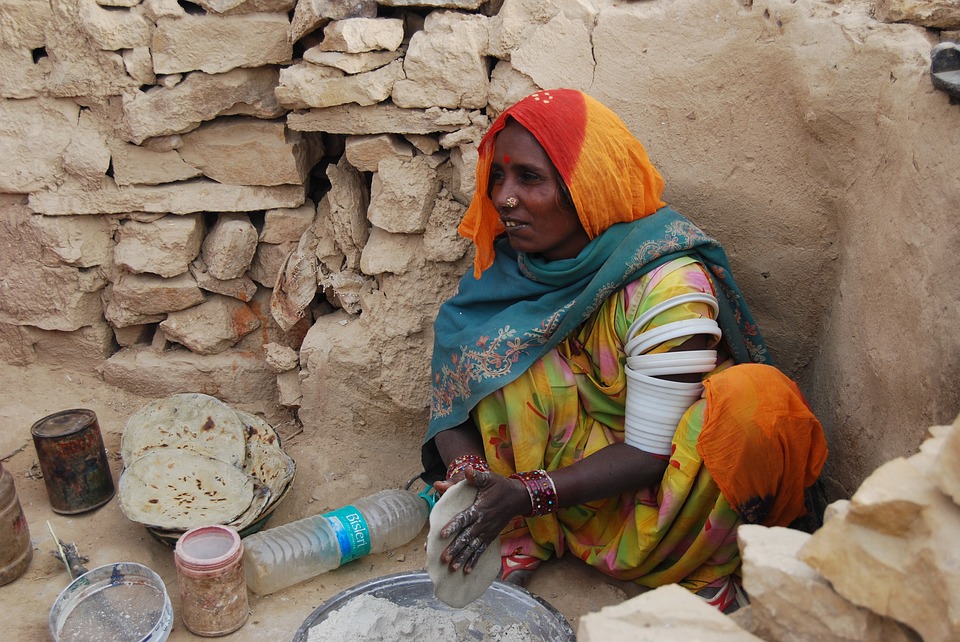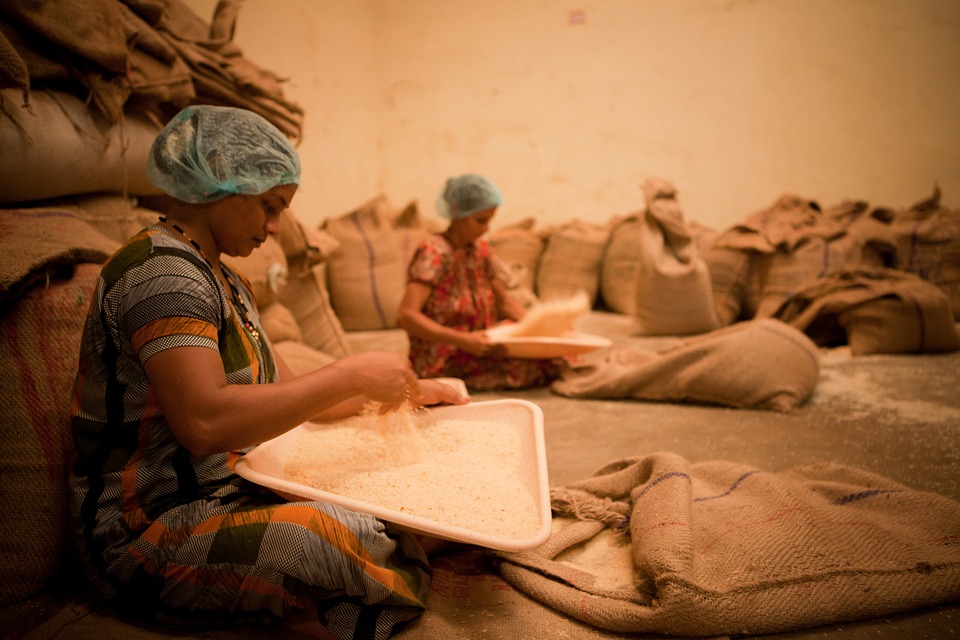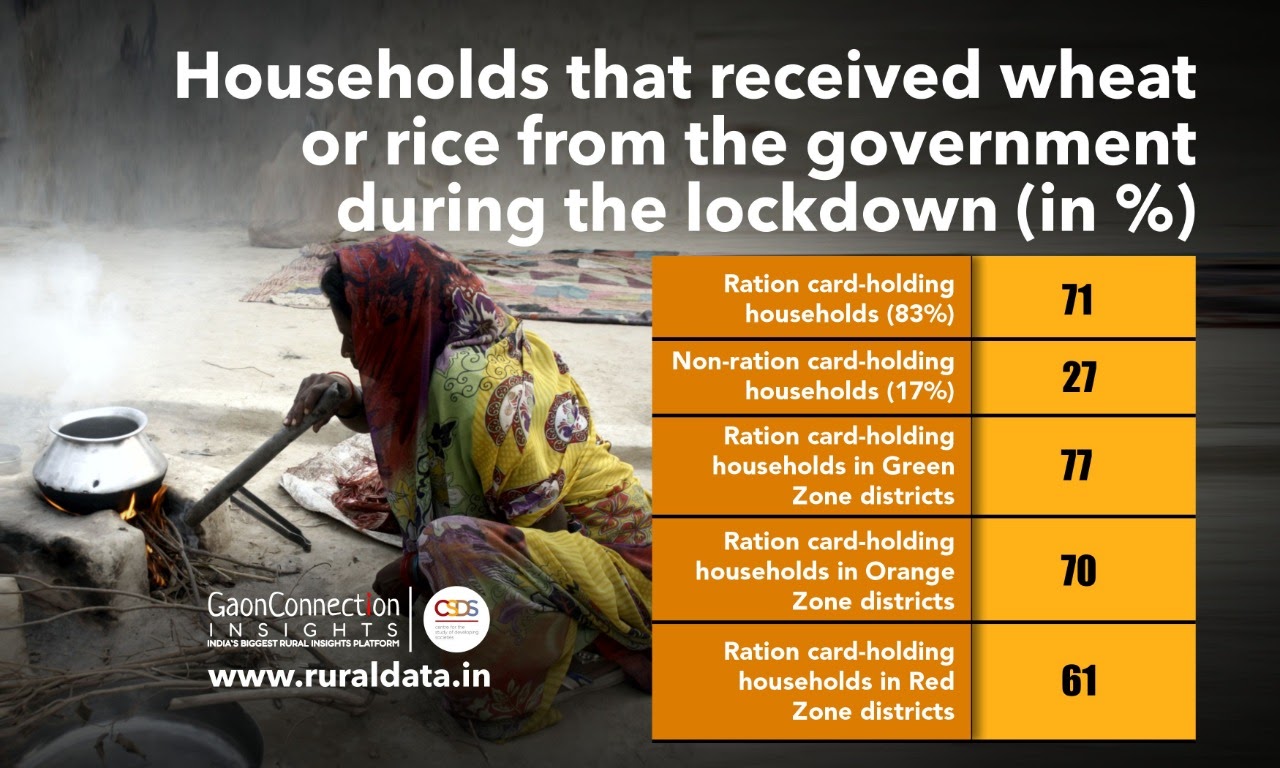Centre announces 5 kg free grains a month to the poor for May-June; experts seek extension
Amid the COVID19 curbs, the central government has announced free extra food grains to 800 million beneficiaries for the next two months. Sector experts demand extension of the scheme and want it to cover non-ration card holding poor families too.


Last year, during the lockdown, a large number of poor workers faced acute food shortage. Photo: Pixabay
As the second wave of the COVID19 pandemic sweeps across the country, with a steep rise in the coronavirus cases and related deaths, the Indian government has announced free food grains (rice or wheat) to the poor under the Pradhan Mantri Garib Kalyan Anna Yojana.
Around 800 million beneficiaries will receive five kgs grain a month for the coming two months of May and June. Prime Minister Narendra Modi announced this yesterday, April 23, after holding a meeting with chief ministers of states reporting high COVID-19 case burden. This allocation is over and above the five kgs of food grains per month each beneficiary is entitled to under the National Food Security Act, 2013 (NFSA).
While welcoming the recent announcement, activists of the Right to Food Campaign, a network of organisations and individuals working on food rights, have demanded an extension of this scheme beyond the two months.
Also Read: Excluded by marriage: ‘Over a million women in Odisha left out of PDS’
“We welcome this move. Five kilos of food grains is good but it is limited to PDS [public distribution system]. Those without ration cards will not get any benefits,” Dipa Sinha, assistant professor, Dr BR Ambedkar University, Delhi told Gaon Connection. “It is also announced only for two months. The programme should be further extended to six months because job recoveries will take time,” she added.
“This year, pulses have not been included in the package. This when we have enough stock of food grains in the FCI [Food Corporation of India] godowns,” Sinha added. She is also associated with the Right To Food Campaign, Delhi.

Several requests from opposition leaders and experts
The recent Pradhan Mantri Garib Kalyan Anna Yojana is in line with the PM Garib Kalyan Yojana, which was launched last year on March 25 to provide relief to the poor and needy during the pandemic. Last year’s relief package included five kgs of extra rice or wheat and one kg of extra pulses to ration card-holding poor beneficiary households. The scheme, with an outlay of Rs 26,000 crore [Rs 260 billion], was extended till November last year.
Earlier this month, at least three state governments — Rajasthan, Uttarakhand and Kerala — and several opposition leaders, including Nationalist Congress Party Chief Sharad Pawar and senior Trinamool Member of Parliament Sougata Ray, urged the Centre to start a free foodgrain scheme for the poor under the PM Garib Kalyan Anna Yojana.
In order to control the spread of the virus, a number of state governments are enforcing curfews and lockdowns. This has a direct impact on the income of the poor and the migrant workers. Last year, during the lockdown, a large number of urban poor and migrant workers who were stranded in the cities faced acute food shortage and hunger cases went up.

After the free food grains scheme was terminated last November, the Right to Food Campaign activists wrote to the central government to restart the scheme for food security.
“Since November last year, we have written letters to the central government urging the centre to restart the programme. This was a very important intervention,” Sameet Panda, lead member, Right to Food Campaign, Odisha, told Gaon Connection.
“Also, FCI has more than enough food grains. It does not have more godowns to stock food grains. At this time when people need additional ration, the restart of the scheme is much needed and a welcome step,” Panda added.
While announcing a mini-lockdown in the state on April 13, Chief Minister Uddhav Thackeray rolled out a Rs 5,476-crore relief package. As per this package, about 70 million beneficiaries are to receive 3 kilogrammes (kg) of wheat and 2 kg of rice free of cost for one month.
Additionally, 200,000 meals under the state government’s ‘Shiv Bhojan Thali’ will be available free of cost every day; and 3.5 million beneficiaries of the Sanjay Gandhi Niradhar Yojana, Shravanbal scheme and the centrally sponsored Indira Gandhi National Old Age Retirement Scheme, Indira Gandhi National Widow Retirement Scheme, Indira Gandhi National Disability Retirement Scheme will receive Rs 1,000 from their entitlement in advance.
Also Read: For Mumbai’s migrant workers, it’s a second wave of job losses and hunger
Gaon Connection Survey on hunger
Last summer, during the nationwide lockdown, Gaon Connection conducted a national rural survey of 25,000 respondents to understand the impact of the lockdown on rural households (Read the full survey report here). Over 63 per cent respondent rural households reported receiving wheat or rice from the government during the lockdown.

However, as against 71 per cent households with ration cards reportedly receiving foodgrains from the government in the lockdown, only 27 per cent non-ration card holding households received foodgrains support from the government. Seven in 10 economically weak households with no ration cards reportedly faced ‘very high’ or ‘high’ difficulty in accessing food during the lockdown, the survey found.
“Compared to last year, this time the situation is even worse. There has been a year of slowdown, migration, and reverse migration, so much disruption has happened. There’s a need for social protection at this point of time. Cash transfers are also needed. Due to COVID, states are under a great pressure, the central government needs to step in,” said Sinha.

